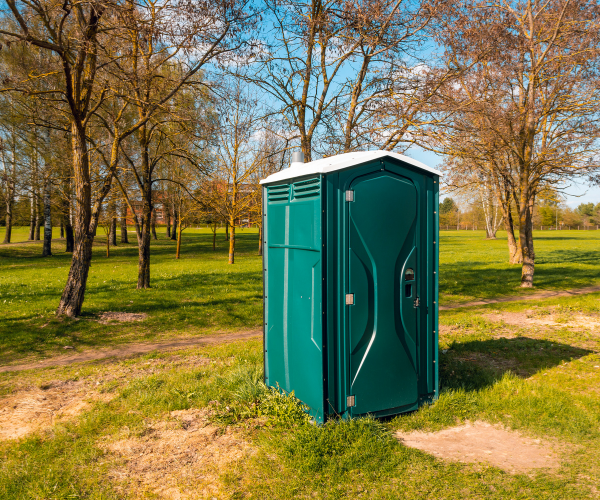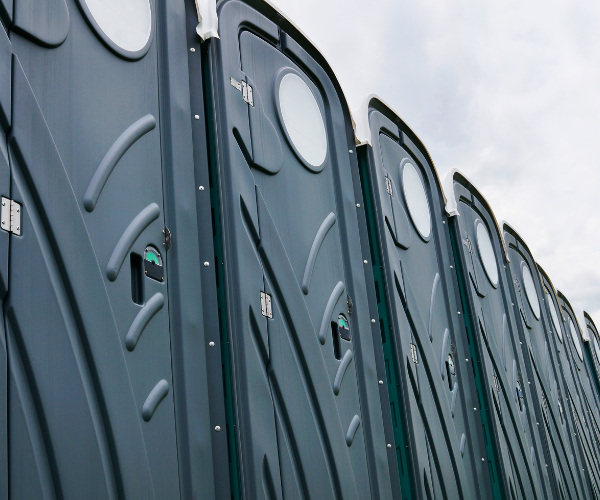Using Portable Toilets offers substantial eco-friendly benefits, starting with conservation of water resources. Traditional toilets can consume gallons of water per flush, whereas many Portable Toilets are designed to be waterless or use significantly reduced amounts, effectively conserving this precious natural resource during use. Furthermore, the construction and materials of modern Portable Toilets have adapted to more sustainable practices. Often crafted with recycled or recyclable materials, these units are designed to be durable without putting unnecessary strain on the environment. The ability to relocate with ease also minimizes environmental disruption; they can be set up wherever needed and removed without leaving a permanent footprint or requiring infrastructure changes that could alter natural landscapes. Efficient waste management is another key advantage. Portable Toilets collect waste in a contained environment, which can then be properly treated and sanitized, reducing contamination risks to local areas and water bodies. This practice supports healthier soil and local ecosystems by minimizing human footprint in festival grounds, parks, construction sites, or remote work areas. In addition, Portable Toilets often utilize specialized chemicals that not only neutralize odors but are designed to be biodegradable and non-toxic. This ensures that even when cleaning and waste handling occurs, harmful residues are minimal, further cementing their role in supporting a healthy, eco-conscious system. Finally, the logistical operations of providing Portable Toilets are continuously evaluated for environmental impact. Efficient transportation routes are assessed to lower carbon emissions, and service providers often strive to incorporate eco-friendly vehicles into their fleets. This attention to detailed operations fosters a more collective, positive environmental impact, positioning Portable Toilets as a beneficial solution wherever temporary sanitation is required.

Portable Toilet Rentals in Senoia, Georgia
Call today for a free quote (770) 215-0134
Portable Toilet
Fast, Easy, & 100% Free To Get Started
Over 20 Years Experience
With over 20 years of experience serving Senoia, our company has built strong ties to the community while adhering to the highest standards of quality. We are dedicated to customer satisfaction and pride ourselves on delivering exceptional service that residents can rely on.
Unmatched Service Quality
Experience unparalleled service with our Portable Toilet rentals. We prioritize cleanliness and reliability, ensuring that every unit meets our high standards. Trust us to provide the best service for your event needs.
Fast, Reliable Delivery
Our clients benefit from our fast and reliable delivery of Portable Toilets. We understand the importance of timeliness and efficiency, ensuring your units arrive when and where they are needed. Our team is committed to hassle-free service.
Efficient Portable Toilet Services in Senoia
Call for a Free Quote Today
(770) 215-0134
Our Portable Toilet company in Senoia delivers reliable sanitation solutions for a wide range of occasions. As a locally owned business, we pride ourselves on dependability and trustworthiness. Our services support construction sites, parties, festivals, and weddings across Senoia and nearby areas. We guarantee each rental remains clean, well-maintained, and punctual, providing event organizers with genuine peace of mind. With countless satisfied clients, our dedication to quality and customer satisfaction is unparalleled. Choose us for your next event and experience the expertise of a professional, community-focused company.


Our standard porta john rental units are durable and reliable for any commercial build site, housing development, public works project, or remodel job.Features include dome lighting, grated floors, and an “In-Use” locking mechanism for privacy and comfort. Regularly maintained, inspected, and cleaned by FusionSite at your location.

Developed as an alternative to full ADA-compliant restrooms, the Liberty is a spacious, wheelchair-accessible unit that can also be promoted as a family-sized restroom. Includes a patented flat-floor system for easy wheelchair access and maneuverability.Handrails, paper holder, and rotary latch are designed for simple, intuitive end-user operation.

Portable hand washing stations are essential for keeping your work site sanitary and clean. Features hands-free foot pumps, liquid soap, and paper towels.Perfect for job sites without water hookups, these units can handle hundreds of washes between services.
We Proudly Serve
Standard Portable Toilets
Our Standard Portable Toilets provide dependable and clean sanitation solutions for Georgia Container in Georgia.
High Rise Portable Toilets
The High Rise Portable Toilets service in Senoia offers elevated sanitation solutions for construction sites and events.
Restroom Trailers
Our Restroom Trailers at Senoia deliver comfort and luxury for any event hosted by Georgia Container.
Roll off Dumpsters
Rent Roll off Dumpsters at Georgia Container in Senoia for efficient waste management solutions.
Septic Tank Cleaning
Septic Tank Cleaning services at Georgia Container ensure optimal sanitation functionality across Georgia.
Grease Trap Cleaning
Senoia's Grease Trap Cleaning service in Georgia helps maintain clean and efficient drainage systems.
Fencing & Barricades
Fencing & Barricades services at Georgia Container offer secure and reliable outdoor space management.
Residential Storage
Our Residential Storage service in Senoia, Georgia, provides secure and convenient storage for all your needs.
Senoia Sanitation Solutions
Getting a quote and arranging delivery for a Portable Toilet in Senoia has never been easier. Our streamlined process allows customers to quickly receive quotes by filling out a simple online form or contacting our customer service team. Upon receiving your request, our team promptly calculates the most competitive rates based on your specific needs and event logistics. Transparency is key, and our detailed quotes cover rental, delivery, and maintenance fees. Once agreed, our team takes care of the delivery, ensuring that Portable Toilets arrive on-site well ahead of time. We provide thorough instructions on setup and maintenance, allowing you to focus on your event. Post-event, our team manages pickup, leaving you with a seamless, stress-free rental experience.

Enjoy the best of Senoia's events and attractions with our Portable Toilets. Whether you're exploring the charming backdrop of Senoia, where shows like "The Walking Dead" have been filmed, or attending the lively Senoia Arts and Car Show, our service ensures that sanitation is never a concern. We cater to various events, enhancing guest comfort with exceptional and reliable facilities. Our service is tailored to the unique charm and character of Senoia. Whether for festivals, weddings, or outdoor gatherings, our Portable Toilets are always clean, equipped, and ready to handle any occasion. Choose our locally-focused service to support community growth. Our longstanding relationships with Senoia residents reflect our commitment to maintaining our hometown feel, bringing high-quality service directly to you and your guests.
When it comes to selecting the premier Portable Toilet service in Senoia, we excel. We know the local community well, combining professionalism with a personal touch, making us the top choice for all events.The trust of the Senoia community is our greatest asset. Our clients value our commitment to punctuality and reliability, ensuring that every event goes smoothly.We exceed expectations, providing more than just toilets—we deliver total satisfaction and peace of mind. Rely on us for all your future event needs.
Our Portable Toilet service excels in speed and reliability. In the fast-paced event planning world, efficient solutions are crucial to maintain momentum and boost productivity.From seamless booking to prompt delivery and setup, we streamline every step to lighten your load. Our experienced team expertly manages logistics, guaranteeing timely arrangements and service, even in the most dynamic environments.Reliability defines our reputation in Senoia, where clients consistently choose us for our demonstrated accountability and commitment to every task.
Learn More About Our Portable Toilet
Renting a Portable Toilet in Senoia is an easy and straightforward process. At the top and bottom of our website pages, you'll find forms that can be filled out to obtain a quote and begin the rental process. These forms require some basic information: your first name, last name, phone number, and email. Additionally, throughout the site, you'll notice 'Get A Quote' buttons which, when clicked, will direct you to the same forms. As soon as your information is submitted, our dedicated team evaluates your requirements and develops a tailored proposal based on your specified needs. This proactive approach ensures that you receive not only a competitive quote but also a comprehensive explanation of the services that best fulfill your requirements. Following this initial step, decisions regarding unit types, quantities, delivery schedules, and service durations are effortlessly made with our experienced representatives. Subsequently, we facilitate a seamless delivery and set-up, prioritizing punctuality and situational appropriateness. Our customer service team remains on standby, addressing any additional queries or logistical preferences you might have, thereby fostering a stress-free rental experience and consistent communication.
The typical delivery timeframe for Portable Toilet orders varies depending on several factors, including the scale of the order, location, and current demand. However, most orders can be fulfilled within 24 to 48 hours after confirmation. Our efficient logistics system and dedicated team work diligently to ensure quick service without compromising on quality or safety. We understand the urgency often associated with event planning or temporary construction needs. That's why we prioritize immediate order processing and route optimization to reduce travel time and ensure equipment delivery within the agreed timeframe. For immediate orders, we provide options that cater to urgent requests, ensuring that when deadlines tighten, we supply the needed units promptly, allowing you to maintain event continuity without logistical disruptions. For recurring or scheduled events, we offer pre-arranged delivery schedules, granting peace of mind well ahead of the event date. This proactive planning allows you and your event coordinators to focus on other critical elements, knowing our delivery services are reliable and punctual. Each delivery is accompanied by detailed planning and communication from our team, ensuring setup instructions are clear and maintenance queries addressed. Pre-event briefings with our logistics coordinator prevent any scheduling conflicts or misunderstandings, ensuring our Portable Toilets are in position to support your needs as desired.
Yes, we can service a wide variety of events and construction services, ensuring that each event is equipped with the appropriate sanitation facilities. Whether it's a community festival, a major sporting event, a fairytale wedding, a corporate retreat, or a family gathering, our extensive range of services has you covered. Our offerings span from luxury restroom trailers for high-profile gatherings to basic porta potties suitable for outdoor fairs. For corporate and private events, we offer attractive, comfortable options that do not compromise on convenience or hygiene. Along with these, we also provide roll-off dumpsters, essential for maintaining cleanliness at larger venues, and fencing and barricades that help in organizing and securing spaces. For construction sites, our ADA units, portable sinks, and hand sanitizer stations ensure compliance with health and safety regulations, while holding tanks handle waste management efficiently. Our adaptable service ensures whatever your needs may be, we can tailor a solution that not only meets but enhances your event or service quality.

